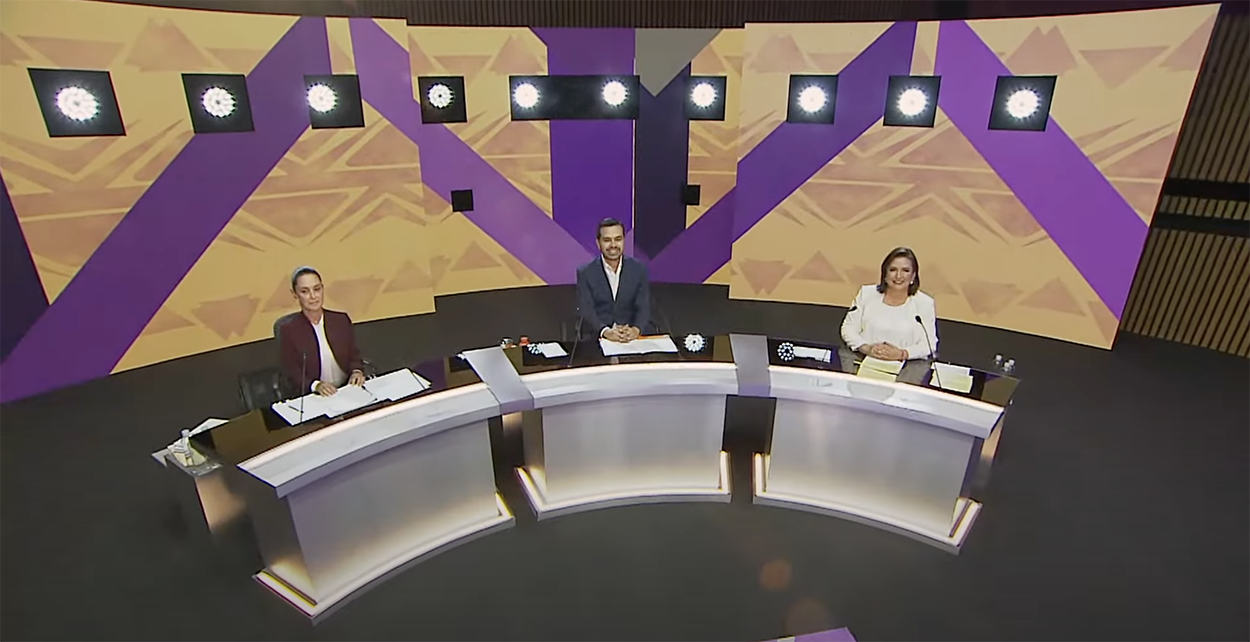Mexico Update: December 2007
Mexico Update: December 2007
Marking the conclusion of President Calderon’s first year in office, the AS/COA looks back at his accomplishments and challenges ahead in the new year. Opinion polls give the President a higher rating than that of his predecessor at the same point in time.
One year after taking office, President Felipe Calderón can attest to a successful first year. His government has put forward a balanced budget, negotiated with Congress to pass long overdue reforms, and reasserted the fight against drug-related violence. The Americas Society and Council of the Americas look at some of the accomplishments as well as the challenges that remain.
2008 Mexican Budget
After congressional passage of the income budget on October 30 and the expense budget on November 12, Mexico marked the third consecutive balanced budget. The new $234 billion budget assumes that oil will sell for $49 per barrel and GDP growth will reach 3.7 percent in 2008. According to Secretary of Finance and Public Credit Agustín Carstens, the 2008 budget is the largest in Mexican history. This is due to the high price of oil and new tax regulations introduced as part of the fiscal reform.
The budget also calls for unprecedented social spending—$101 billion, or 43 percent of outlays, will be directed toward social programs. Public safety spending will increase by 39 percent and communication and transportation budgets will jump 44 percent. PEMEX, Mexico’s state-owned petroleum company, is expected to contribute 34 percent of government revenue, a 3 percent decrease from 2007. Secretary Carstens recognizes that, in the years ahead, Mexico must decrease its emphasis on oil.
Security and the Mérida Initiative
Mexico's drug cartels were hit hard in 2007. Approximately 13,300 people linked to drug smuggling were arrested and 89 detainees were extradited to the United States. The Calderón administration has also overseen large drug busts, including a 23-ton cocaine shipment. Nevertheless, drug-related violence has surged. Estimates suggest that over 2,500 violent deaths related to the drug trade will be seen by year end.
In October, the United States announced the Mérida Initiative, a security cooperation initiative involving Mexico and Central America to combat drug trafficking and transnational crime. Concern among U.S. and Mexican officials regarding the growth of Mexican drug cartels sparked the joint effort. Mexican cartels earn roughly $13.8 billion per year from U.S. drug sales. Ninety percent of cocaine consumed in the U.S. passes through Mexico. Mexican Attorney General Eduardo Medina-Mora has argued that “in this war, we either win it together or we lose it together.”
The Merida Initiative is named after the capital of the Mexican state of Yucatán, where Presidents George W. Bush and Felipe Calderón met in March 2007. Among its proposals, the initiative includes anti-corruption safeguards, aircraft, intelligence equipment, and software as well as military and law enforcement training. The multi-year plan would cost $1.4 billion. To get it off the ground, the Bush administration has requested congressional approval of an initial $500 million for fiscal year 2008.
Contrary to what many expected after the contested 2006 elections, Mexico’s political parties have come together to pass pension reform for civil servants, fiscal reform, and electoral reform. Regardless of agreement with the various aspects of each reform, the fact that key legislation has been approved is a positive sign.
Congress is also in discussion to approve what would constitute the biggest transformation of the Mexican judicial system in over a century. The Chamber of Deputies approved the measures, but due to minor Senate changes, the legislation has now been sent back to the Chamber. With Congress in recess until mid-February, deliberations are temporarily on hold. To become law, the measures would have to be approved by 16 of Mexico’s 31 states. Judicial reform legislation calls for the presumption of innocence, oral public trials, and permission for the police to enter homes and search private records without a warrant.
Political Party Dynamics
After their poor showing in 2006, the Institutional Revolutionary Party (PRI) made a significant comeback in 2007. This happened under the leadership of Beatriz Paredes, who took over as party president earlier this year. The PRI managed to regain the governorship of Yucatán, while gaining significant ground in local elections in Chihuahua, Sinaloa, Veracruz, Oaxaca, and Tamaulipas.
In Michoacán state’s October elections, the Party of the Democratic Revolution (PRD) candidate, Leonel Godoy Rangel, won with 33.1 percent of the vote. The election was significant for a variety of reasons. Not only did each of the three main political parties stand a chance of winning, but Michoacán was the first state where the army was deployed to fight drug trafficking. Soon after his appointment, Leonel Godoy met with President Calderón—a Michoacán native—and they agreed to cooperate and maintain good working relations. The Michoacán results are a positive sign for the PRD, which is set to elect a new party president in March 2008.
During the 2007 local elections, the National Action Party (PAN) held on to the governorship of Baja California, but other than that, the party could not count many victories. On December 9, Germán Martínez, who had served as secretary of public function, took over the PAN´s presidency. He replaced the controversial Manuel Espino. Martínez, a close ally of President Calderón, was the only candidate registered for the internal party election. The PAN central committee has also been replaced, with the majority now identified as felipistas, or supporters of President Calderón. Panistas hope that a new president and central committee will help the party to overcome internal divisions.
Presidential Approval
According a Consulta Mitofsky poll published each trimester, President Calderón´s approval ratings have dropped 7 percent to an overall approval of 58.9 percent. While the President’s honeymoon period is over, his rating is still slightly higher than during his first trimester as president. Public support is also greater than that registered for former President Vicente Fox after his first year in office.
The poll links President Calderón´s lowered approval ratings with increased concern over economic performance, in particular price increases and rising fuel costs. In central and southern Mexico, the greatest source of anxiety is the economy, while in the north, insecurity and violence top the list.







